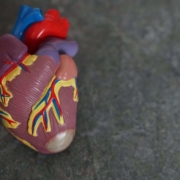Nutrition is the catalyst to excellent health, strength and body composition. Nutrition is crucial for physical goals (i.e. fat loss) and more health and lifestyle-oriented goals (for example, better focus, energy, detoxification, and blood sugar control).
What we do in training needs to be matched by how we eat and recover, and the saying “we are what we eat” still holds.
If your computer or phone were to break down, you would need to repair it or possibly purchase a new one. By analogy, sometimes our bodies need a reboot and repair, and the food we consume has a massive impact on how we function.
Our general modern lifestyles are plagued with processed foods, high-stress jobs, busy schedules, poor sleep, and environmental toxins (e.g. pollution, certain plastics, detergents), all of which holds us back from good health.
Understanding we are what we eat.
The food we eat influences numerous aspects of our health and body, including our neurotransmitters (chemical messengers), hormones, gut health, focus, energy, and body composition. So the food we consume can quite literally affect how we are functioning.
For example, eating breakfast with protein and healthy fats will raise dopamine, a neurotransmitter that helps focus, alertness and drive, which will set you up for the day. Alternatively, consider that some foods are sprayed heavily with pesticides, which means you have to get rid of those toxins, so ideally, high-quality organic produce is best.
So we know that food can affect us in many ways, the question becomes… “what are the basics to eating well?”
- Basics #1 – Eat real food!
- Basics #2 – Meal timings.
- Basics #3 – Adherence.
What is real food?
We mean things that have grown, flown, swam, or come from the land by real food—so thinking along the lines of protein sources such as chicken, turkey, beef, bison, venison, eggs, fish and shellfish. For carbohydrate sources, rice, oats, quinoa, amaranth and root vegetables are staples. Get fats from olive oil, butter, nuts, seeds, coconut oil, or fatty fish (e.g. salmon) and add plenty of leafy green vegetables.
There’s no need to label how you eat as a ‘diet’, but following a Paleo-style plan is a great bet.
Further reading about the benefits of Palaeolithic eating:
Meal Timings
This refers to how much time is between each meal, which is essential to be aware of. Each time we eat, our blood sugar levels rise; we must keep our blood sugars stable as significant increases and decreases in blood sugar levels can worsen our long term health. Controlling our blood sugar levels will also affect our energy and focus.
The simplest way to do this is to have evenly spaced out main meals (i.e. every 3-4 hours); this way, blood sugar is more kept at a more stable level. Some good snacks would be a handful of nuts and seeds, a scoop of amino acids or protein powder in between main meals. Try to make sure meals are also reasonably equal in quantity since having a huge dinner will cause a spike in blood sugar.
Adherence
Learn what works for you and what you find sustainable over the long term. Find ways to make your nutrition more sustainable; this could be bulk cooking, so you always have lunch ready; it could be preparing all your meals in Tupperware or even writing out what you will eat over the week.
Consistency is king, so find ways that help you eat better in the long run.
Implementing these basics into your lifestyle is simple to do and will significantly affect your health and body composition.
Should you need further advice on specific issues such as maintaining energy, focus, improving insulin sensitivity, or other problems, investing in a consultation can provide you with tailored advice beyond this article, including specific nutritional recommendations and supplementation.
If you would like to book a Consultation with Roan or explore the possibility of starting our online training programme, please head to our Consultations page for more info on how to do this.
Disclaimer
Always speak with your physician or other healthcare professionals before making any nutritional & lifestyle changes or before taking any nutritional supplement. For more information, please view our terms & conditions.










